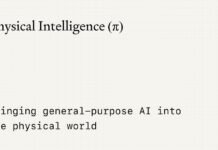Did you know AI agents range from simple to highly advanced? They play a key role in doing complex tasks and automating many industries. These agents use machine learning and natural language processing to improve their work1.
They sift through huge amounts of data, understanding and adapting to different situations. This boosts productivity and makes operations smoother2. By looking into the types of AI agents and their growth, we see their big impact on technology’s future.
Key Takeaways
- AI agents have a wide range of abilities, from simple to highly advanced.
- The world of AI agents is growing fast as technology gets better.
- There are different types of AI agents, like Simple Reflex, Goal-based, and Learning agents.
- AI agents can handle complex tasks on their own with little help.
- Statistics show AI agents are both flexible and truly independent.
Understanding Artificial Intelligence Agents

Artificial intelligence (AI) agents are advanced systems designed to achieve specific goals. They interact with their environments to do so. The definition of AI agents includes programs that can see, reason, and act on their own. These agents use a structured method to solve problems, making them useful in many areas.
Examples include software design, IT automation, and conversational assistants. This shows how AI can be used in real-life situations3.
Definition of AI Agents
At the heart of the definition of AI agents is their ability to work on their own. They start with goals set by users, then reason and learn from their experiences. This cycle helps them get better over time, making them more accurate and effective in different settings.
Feedback, like human input, is key to improving their skills. It makes them more dynamic and adaptable3.
Components of AI Agents
The components of AI agents are crucial for their function. They include actuators, percepts (sensors), knowledge bases, and processors. Actuators let agents take physical actions based on their decisions.
Percepts collect sensory data, helping agents understand their environment. A knowledge base stores this understanding, aiding in decision-making. By combining these parts, AI agents can solve complex problems and work together efficiently34.
The Role of Agents in AI
In today’s fast-changing tech world, AI agents are key in many areas. They help understand data, make choices, and act on them. This changes how industries work and improves services.
Functions of AI Agents
AI agents do a lot, like seeing their world, handling info, and taking actions. They use cool tech like natural language processing and machine learning. This helps them do tasks better.
They make data analysis easier, making work flow better and faster. For example, big language models power AI agents. They help with complex tasks and planning to reach goals5. These agents get better over time, making decisions and actions more effective.
Importance of Agents in Various Industries
AI agents are very important in healthcare and finance. In healthcare, they can spot diseases up to 50% better, improving care and diagnosis6. In finance, they catch fraud better than humans, saving a lot of time and money6.
They can look at lots of data fast, helping businesses grow. Even though starting AI costs money, the long-term gains are worth it. They are essential for today’s businesses.
How many agents are in AI?
The world of technology is growing fast, with more AI agents playing key roles in many areas. We see different types of AI agents, each with its own job. These include simple reflex engines and more advanced learning agents. Big names like OpenAI, Google, and Microsoft are racing to lead in AI7.
Each AI agent has special skills for different tasks. This lets businesses use their strengths to the fullest.
Types of AI Agents
AI agents fall into five main types, each with its own level of freedom and decision-making. From simple reflex agents to complex learning agents, they cover a wide range of abilities. They help in many fields, like customer service and software engineering, making things more efficient and productive7.
Recent data shows AI agents can greatly improve operations. They cut down on mistakes and save money7.
Statistics and Growth of AI Agents
The market for AI agents is growing, thanks to more demand and tech progress. Studies give us a closer look at the North American AI agents market, showing different types and how they compete8. Real-world examples show how AI agents boost productivity and help make better decisions with data analysis7.
With a focus on AI’s exciting future, it’s clear that new tech will keep changing the game78.
Types of AI Agents Defined
Artificial intelligence includes many types of AI agents. Each has its own functions and attributes for different roles. Knowing about these types helps us see how they work in various fields.
Reflex Agents
Reflex agents are a basic type of AI. They react fast to what’s happening around them. But, they don’t remember past events.
They are easy to make but can’t change much. This makes them good for simple tasks. For example, they work well in smart thermostats and basic spam filters9.
Goal-Based Agents
Goal-based agents think ahead and plan to reach goals. They are great at making tough decisions. But, they need more power to handle many possibilities.
They are very good at things like managing investments and helping with complex customer needs. They even power AI virtual assistants109.
Learning Agents
Learning agents get better over time by learning from their experiences. They can change how they act based on what they’ve learned. This makes them key in changing situations, like self-driving cars and smart chatbots.
At first, they might not do things perfectly. But, they can get better. This makes them very useful in places where things need to adapt and get better over time109.
How AI Agents Operate
Understanding how AI agents work is key to seeing their impact. They use a structured method that includes collecting, processing, and making decisions. First, they use sensors to get information about their surroundings.
Data Collection and Processing
Data collection is vital for AI agents. They analyze this data to understand their environment. Advanced algorithms like decision trees and neural networks help them make decisions.
Autonomous agents have strong memory systems. This lets them work on their own, analyze data, manage interactions, and answer questions well11.
Decision-Making Processes
AI agents make decisions better with certain frameworks. These include Self-Ask, ReAct, and Plan and Solve. They help agents make choices11.
These mechanisms allow AI agents to handle many interactions at once. This leads to faster responses and happier customers12. They also get better at meeting user needs as they keep interacting.
FAQ
What are AI agents?
How many types of AI agents exist?
What are the core components of AI agents?
Why are AI agents important in various industries?
What is the definition of reflex agents?
How do learning agents operate?
What are the functions of AI agents?
What is the significance of AI growth trends?
How do AI agents collect and process data?
What decision-making processes do AI agents follow?
Source Links
- 5 Levels Of AI Agents (Updated)
- Levels of AI Agents: from Rules to Large Language Models
- What Are AI Agents? | IBM
- Agents in Artificial Intelligence: What Are They And How They Are Used
- Why AI agents are the future of automation
- SmythOS – Role of Intelligent Agents in AI
- What Are AI Agents? | Built In
- AI Agents Market Size, Share and Global Forecast to 2030 | MarketsandMarkets
- What are the Different Types of AI Agents?
- What are Different Types of AI Agents? | Alltius Glossary
- AI agent
- What Are AI Agents? A Complete Guide







